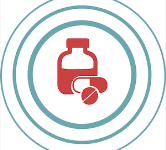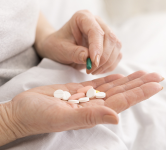£9.95 GBP, 2 hours
World-wide, the proton pump inhibitors (PPIs) are among the most commonly prescribed drugs and in many countries they are now available without prescription. Studies suggest that this class of drugs is overprescribed, with as many as 70 per cent of patients having no clear indications for their use. Long term use of PPIs have been linked to numerous adverse effects such as increased risk of bone fractures, GI infections, and renal disease.
Understanding the role that PPIs and other medications play in managing upper GI conditions is essential to promoting appropriate use of these drugs and reducing their risk of harm. The discovery of the bacterial causes of gastritis and ulcers plus the development of new drug therapies for upper GI conditions have turned what were once considered chronic lifestyle diseases, relentlessly affecting the lives of many, into short-term, easily managed conditions. PPIs also reduce the risk of GI bleeding caused by chronic administration of aspirin and other nonsteroidal anti-inflammatory drugs or anticoagulants, thus increasing life-expectancy and reducing disability for millions around the globe.
After completing this activity and quiz, you should be able to
- Describe common upper GI conditions and their causes.
- Outline the mechanisms of gastric secretion and protection.
- Explain the actions of commonly used drugs in the management of upper GI conditions.






